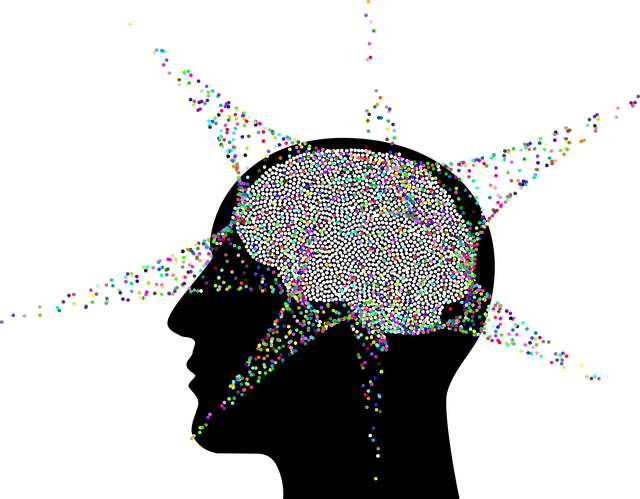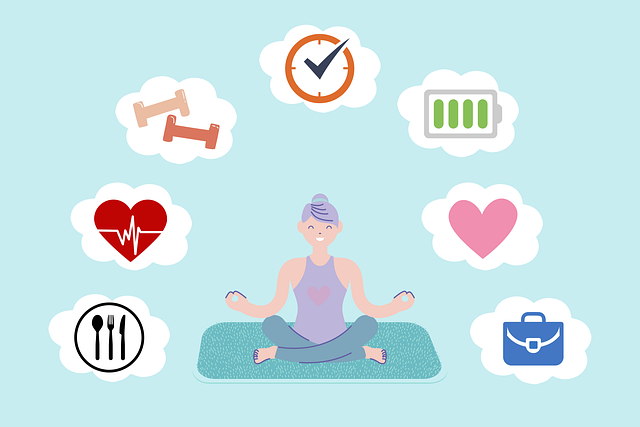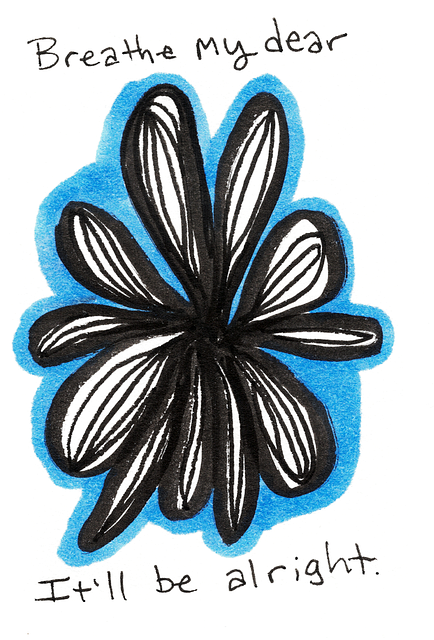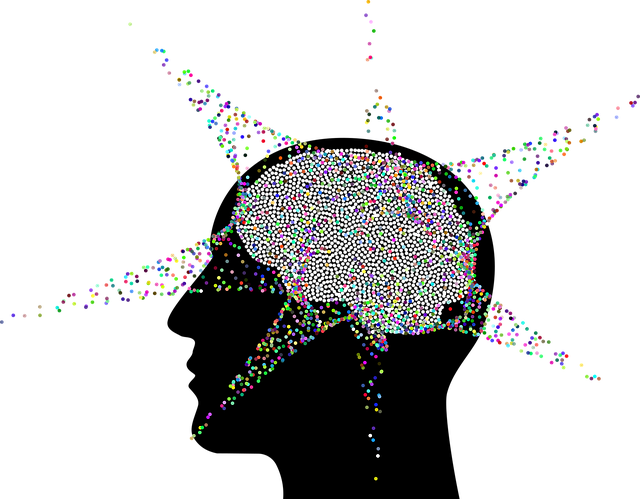Highlands Ranch Chronic Pain Therapy emphasizes early depression identification through recognizing subtle signs like sadness, appetite changes, and fatigue. They promote well-being through lifestyle changes including dietary guidance, exercise, sleep hygiene, and mental health practices. Therapy and support groups are offered to teach mood management tools and resilience strategies for stress coping. Their holistic approach integrates chronic pain and emotional well-being, empowering individuals with evidence-based techniques for effective pain and depression management.
Depression is a prevalent and serious mental health concern, but it’s not invincible. This article explores effective prevention strategies for navigating and overcoming depression. From understanding the early signs and symptoms to adopting lifestyle changes like diet, exercise, and sleep habits, we delve into practical approaches. We also highlight the significance of therapy, support groups, and how Highlands Ranch Chronic Pain Therapy offers a holistic approach to mental health. By integrating these strategies, individuals can build resilience and strengthen their emotional well-being.
- Understanding Depression: Recognizing the Signs and Symptoms
- Lifestyle Changes for a Healthier Mind: Diet, Exercise, and Sleep
- The Role of Therapy and Support Groups in Prevention
- Highlands Ranch Chronic Pain Therapy: Targeting Mental Health Holistically
Understanding Depression: Recognizing the Signs and Symptoms

Depression is a complex mental health condition that affects millions worldwide, and early recognition is key to effective prevention. Understanding its subtle signs and symptoms is essential for both individuals and healthcare providers in Highlands Ranch Chronic Pain Therapy. This includes persistent feelings of sadness, loss of interest in activities once enjoyed, changes in appetite or sleep patterns, fatigue, difficulty concentrating, and in severe cases, thoughts of self-harm.
Healthcare professionals play a vital role in Burnout Prevention Strategies by educating themselves and others on these indicators. Community Outreach Program Implementation and Public Awareness Campaigns Development can further help in dispelling myths surrounding mental health and encouraging individuals to seek support early on. By recognizing the signs, we can foster an environment that promotes well-being and provides timely intervention, ultimately reducing the impact of depression on our communities.
Lifestyle Changes for a Healthier Mind: Diet, Exercise, and Sleep

Making lifestyle changes can significantly impact mental health, including depression prevention. A balanced diet rich in fruits, vegetables, whole grains, and lean proteins is essential for maintaining a healthy brain. In Highlands Ranch Chronic Pain Therapy, dietary considerations often include managing pain through anti-inflammatory foods and ensuring adequate nutrition to support overall well-being. Regular physical activity boosts mood by releasing endorphins, reducing stress, and improving sleep quality. Incorporating Self-Awareness Exercises and Emotional Intelligence practices can further enhance these benefits, helping individuals manage their emotions more effectively. Additionally, prioritizing consistent and restorative sleep is crucial for emotional regulation and cognitive function, making it a key component of self-care practices in preventing depressive episodes.
The Role of Therapy and Support Groups in Prevention

In the quest to prevent depression, therapy and support groups play a pivotal role. Highlands Ranch Chronic Pain Therapy, for instance, offers specialized services tailored to address mental health challenges often intertwined with chronic physical pain. Through individual or group sessions, individuals gain valuable tools for mood management, a key aspect of maintaining mental wellness. Therapists provide strategies for resilience building, helping clients navigate life’s stressors and emotions more effectively.
Support groups further enhance this process by creating safe spaces where individuals can share experiences, connect with peers facing similar struggles, and learn from one another. These networks foster a sense of belonging and understanding, which is crucial for mental wellness. Combining therapy and support groups allows for a holistic approach to depression prevention, addressing both the individual’s psychological needs and their social connections.
Highlands Ranch Chronic Pain Therapy: Targeting Mental Health Holistically

Highlands Ranch Chronic Pain Therapy offers a unique approach to depression prevention by addressing mental health concerns holistically. This method recognizes that chronic pain and emotional well-being are interconnected, and treating one without considering the other can be ineffective. The therapy focuses on providing patients with tools to manage their pain effectively while simultaneously cultivating emotional resilience. By combining evidence-based techniques such as Mindfulness Meditation and Empathy Building Strategies, individuals learn to regulate their emotions and cope with challenging situations more adaptively.
Through personalized treatment plans, Highlands Ranch Chronic Pain Therapy empowers patients to take control of their mental health. This includes teaching Emotional Regulation skills that enable individuals to navigate life’s stressors with greater ease. By fostering a sense of connection and understanding within the therapy session, patients develop coping mechanisms that promote overall well-being. Such an integrated approach ensures that both physical and mental aspects of health are nurtured, ultimately reducing the risk of depression and enhancing the quality of life for those managing chronic pain.
Depression prevention is a multifaceted approach, from recognizing signs early on to adopting healthy lifestyle habits and seeking professional support. Integrating Highlands Ranch chronic pain therapy into this strategy can offer significant benefits, addressing both physical and mental health holistically. By combining evidence-based practices like diet, exercise, sleep management, therapy, and support groups with specialized chronic pain treatment, individuals can effectively manage and prevent depression, fostering a more balanced and resilient mindset.














